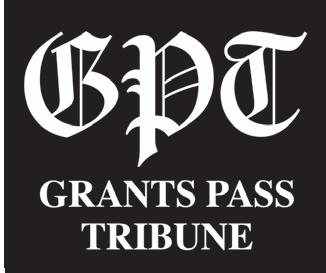




By John Oliver
The countdown is over and the gates are swinging wide open as the Josephine County Fair returns this Wednesday, July 30, with the high-energy theme “Buckle Up!” This annual community tradition promises five full days of food, fun, livestock, music, and classic fair memories — all kicking off with a jam-packed opening day and, best of all, free admission for everyone.
From 11:00 AM to 11:00 PM, the fairgrounds will be buzzing with excitement as families from all over Southern Oregon pour in to experience what’s shaping up to be one of the liveliest fairs in recent memory. A complimentary shuttle service from Rogue Community College makes it even easier for folks to get there without the parking hassle.
Once inside, there’s no shortage of things to do and see. Exhibit halls open at 11:00 AM, where local crafts, agriculture, and community projects are on full display. Nearby, the Selfie Fair in the Photography Department offers a colorful spot for visitors to snap creative pho-
tos, perfect for sharing a bit of fair fun online. Kids and teens will be drawn to the ever-popular Rockin’ Rentals, open all day with bounce houses and GellyBall action that lasts well into the evening.
At 2:00 PM, the Kidz Zone opens with shaded activities for younger children, while the carnival midway roars to life with spinning rides, games of chance, and plenty of funnel cake. Inside the Bingo Hall, Fair Bingo gets underway at 4:00 PM, and just outside, the Paul Bunyan Lumberjack Show delivers two action-packed performances at 4:00 and 6:00 PM.
As the sun begins to set, the fair shifts into high gear. At 7:00 PM, the Challenge of Champions bull riding competition takes center stage in the indoor arena, bringing the grit and thrill of rodeo action to town. Not far away, live music starts at 5:00 PM in the beer garden with local favorite Mike Brons. That energy carries over to the Pavilion Stage, where Jim Lesher & Pure Country take the mic at 6:30 PM, setting the stage for headliner Gretchen
Owens at 8:00 PM.
For those drawn to the agricultural heart of the fair, the barns open early. Livestock events begin at 9:00 AM with market goat and swine shows, followed later by goat family foods and sheep breeding classes. At 4:00 PM, swine showmanship takes the ring, followed by youth and open-class goat and sheep breeding at 5:00 PM. As each show wraps up, the next one kicks off — a seamless rotation of hard-working 4-H and FFA youth showing their pride and projects.
Thanks to the support of local sponsors like Grange Co-op, Evergreen Federal Bank, AllCare Health, Pacific Power, and First Community Credit Union, the fair continues to be accessible and family-friendly. With something for everyone, organizers are calling on the community to come out, buckle up, and enjoy every ride, concert, corndog, and competition the fair has to offer. The 2025 Josephine County Fair is officially underway — and it’s not slowing down any time soon.
News Desk
FBI Deputy Director Dan Bongino issued a dramatic statement on Saturday, declaring that he has been “shocked” by recent findings uncovered during the course of active federal investigations. Though he declined to offer specifics, Bongino hinted that the discoveries pertain to serious allegations of political corruption and the potential weaponization of federal institutions—issues that have increasingly become flashpoints in the nation’s ongoing political discourse.
The remarks came during a brief weekend statement in which Bongino also invoked the involvement of FBI Director Kash Patel, a figure known for his past work in national security and close associations with political figures from the Trump administration. Bongino said that both he and Patel are prepared to "soon reveal the truth" about what has been discovered, suggesting that a more detailed disclosure could be imminent.
“This isn’t about politics—it’s about preserving the foundation of justice and accountability in this country,” Bongino stated. “What we have come across is deeply disturbing, and it raises serious questions about the conduct of individuals in powerful positions.”
While neither Bongino nor the Bureau provided further clarification on the nature of the investigations, the statement has already triggered speculation across media platforms, particularly among watchdog groups and political observers concerned about potential abuses of power. In recent years, accusations of politicization
• see FBI, page 3
By E. Ward
Oregon Governor Tina Kotek has formally signed five new pieces of legislation aimed at alleviating the state’s growing housing crisis. The signing took place Monday at a construction site in Hillsboro, where a future affordable housing development of 18 homes is slated for completion. The location served as a symbolic backdrop for the governor's legislative push to expand housing access and affordability across the state.
The five bills—House Bill 2138, House Bill 3031, House Bill 2258, House Bill 3145, and Senate Bill 684—are part of a broader strategy by Oregon lawmakers to increase housing supply, streamline development processes, and enhance transparency in the real estate sector. Each bill targets a different aspect of the crisis, with measures designed to support long-term growth while also responding to more immediate needs.
House Bill 2138 focuses on improving state oversight and reporting mechanisms related to housing and homelessness programs. The bill is expected to bolster data collection and analysis, allowing policymakers to make more informed decisions and

adjust strategies based on real-time information.
House Bill 3031 takes aim at housing affordability by creating new financial tools and incentives to support affordable housing construction. This includes expanding access to financing mechanisms that can be used by both nonprofit developers and private sector builders focused on lower-income housing projects.
House Bill 2258 addresses land use and planning regulations. It introduces modifications that are intended to ease zoning restrictions in certain areas, particularly urban
growth boundaries, allowing more flexibility for housing development. This bill is seen as a key component in overcoming regulatory obstacles that have long been cited as a barrier to increasing the housing supply.
House Bill 3145 strengthens tenant protections and landlord accountability. It requires more detailed reporting on rent increases and evictions, particularly in subsidized housing units. The bill also outlines steps for municipalities to follow when collecting housing data, which may serve to identify and correct inequities in housing access across various communities.
Senate Bill 684 is aimed at protecting consumers and improving transparency in real estate transactions. It enhances oversight of real estate and property management professionals and implements new disclosure standards for certain financial arrangements tied to housing projects.
Governor Kotek’s decision to sign all five bills in a single ceremony signals the state’s intent to pursue a multi-faceted approach to housing reform. Oregon, like many states on the West Coast, has struggled to keep up with demand amid rising home prices, limit-
ed inventory, and growing rates of homelessness. These legislative changes represent a coordinated effort by lawmakers to move the needle on one of Oregon’s most pressing social and economic challenges.
The Hillsboro site where the bills were signed will soon host 18 new affordable homes—part of a small but tangible step toward meeting the state’s ambitious housing goals. The site was selected to illustrate the kind of community-focused development that the new laws are intended to support. State officials hope that with continued legislative action and local collaboration, Oregon can begin to close the gap between housing demand and supply in the years ahead.




By John Oliver
A move that could reshape the American transportation landscape, Union Pacific has announced an $85 billion agreement to acquire Norfolk Southern, creating the first coast-tocoast freight rail network in United States history. The deal will merge two of the country’s largest railroad companies into a combined entity valued at approximately $250 billion.
The merger will link Union Pacific’s vast freight operations in the western United States with Norfolk Southern’s extensive network across the eastern seaboard. Together, the unified system will stretch over 50,000 miles of track, connecting 43 states and more than 100 ports. This unprecedented reach will establish the most comprehensive rail infrastructure ever assembled by a single company in the U.S.
Union Pacific, headquartered in Omaha, Nebraska, has long dominated freight rail service west of the Mississippi River, moving everything from agricultural goods and automobiles to industrial materials and energy resources. Norfolk Southern, based in Atlanta, Georgia, has similarly controlled much of the freight business east of the Mississippi, with key routes servicing major metropolitan and coastal regions.
With this acquisition, Union Pacific is set to become a true national operator, offering uninterrupted rail service from the Atlantic to

the Pacific. Industry analysts say this could significantly streamline shipping logistics, reduce reliance on long-haul trucking, and improve cargo delivery times for manufacturers, agricultural producers, and global supply chain partners. The deal may also allow for more competitive rates and services, though some critics have voiced concern about reduced competition in the rail freight industry.
The strategic value of the merger lies not just in geography, but in scale. A network of this size could bring enhanced operational efficiency, allow for better allocation of resources, and foster infrastructure investment in underserved regions. By eliminating the need for freight
handoffs between different rail carriers when crossing regional boundaries, the merged company may reduce delays and lower overall transportation costs.
However, the deal is likely to face scrutiny from federal regulators, including the Surface Transportation Board (STB), which oversees rail mergers to prevent anti-competitive behavior and ensure service to rural and economically dependent communities. The STB has blocked or heavily conditioned major rail consolidations in the past and may require the merged entity to maintain certain service standards or divest specific routes to preserve competition.
Additionally, labor unions representing rail-
road workers may raise concerns about job consolidation, work rules, and long-term employment security. Both companies have previously reduced workforce numbers through automation and efficiency measures, and a merger of this magnitude could result in further restructuring across administrative and operational departments.
Environmental advocates may also weigh in on the deal. While rail is widely considered a more sustainable alternative to trucking for long-distance freight movement, increased rail traffic through residential corridors and sensitive ecosystems may prompt calls for mitigation measures or upgraded safety protocols.
Despite these hurdles, the timing of the deal appears advantageous. With U.S. supply chains under constant pressure and demand for reliable freight options growing, especially in light of recent global disruptions, a single rail system capable of coast-to-coast delivery may be welcomed by shippers and logistics providers seeking resilience and dependability.
Pending regulatory approval and shareholder agreements, the merger is expected to proceed over the coming year. If finalized, it would mark the most significant transformation in the American rail industry in decades—one that could redefine how goods move across the country for generations to come.
News Desk
Since breaking the news of a recall petition filed against Oregon Governor Tina Kotek, the public response has been overwhelming. Our newsroom has received a flood of emails — numbering well into the hundreds, if not surpassing a thousand — from Oregonians eager to know where and how they can sign the petition.
To clarify: the official circulation of the petition is expected to begin next week. Until then, those seeking more information — including signature locations, volunteer opportunities, or
general questions — should direct all inquiries to oregonforthepeople@gmail.com. That is the contact point provided by William Minnix, the chief petitioner behind the recall effort.
As a reminder, we are not affiliated with the recall campaign in any way. Our role as a newspaper is to report the news — not participate in it. We do not handle petition logistics, coordinate volunteers, or collect signatures. While we appreciate the public’s enthusiasm and civic engagement, we respectfully ask that readers refrain from contacting our office regarding the recall logistics. All such questions should be
directed to Minnix and his team.
The recall petition, filed and signed by Minnix on July 27, 2025, alleges that Governor Kotek has violated her oath of office by supporting policies that allegedly favor undocumented immigrants while neglecting veterans, disabled residents, and law-abiding Oregonians. The statement also criticizes Kotek’s compliance with federal mandates and her approach to public funding and governance.
The Elections Division recorded the petition on the same day it was signed. The next step is for the petitioner to receive authorization to
begin signature gathering — a process that will require more than 280,000 valid signatures within a 90-day window to qualify for the ballot. Public interest in the petition is clearly growing, and the upcoming launch of the signature phase will likely determine whether the movement gains real traction or fizzles in the face of steep procedural hurdles.
For now, the best source for updates remains the petitioner’s official email. We’ll continue to provide unbiased coverage as this story develops — but please, direct your recall-related questions to the proper source.
From page 1 within the Department of Justice and federal law enforcement agencies have become increasingly common, with both Republican and Democratic leaders accusing each other of undermining the impartiality of investigative institutions.
Dan Bongino, a former Secret Service agent and frequent political commentator, was appointed Deputy Director of the FBI earlier this year amid calls for internal reform and renewed transparency. His appointment came as part of a broader leadership shakeup that also brought Kash Patel into the Bureau’s top position. Patel, known for his legal work related to intelligence and security, has been
an outspoken advocate for reexamining alleged political bias within federal institutions.
The Saturday statement did not offer a timeline for when more information would be released but included a promise that both he and Patel are committed to ensuring the public learns “what has really been happening behind closed doors.” The pledge has intensified calls from lawmakers and journalists demanding further clarification and documentation.
Some critics have expressed concern that the statements, without accompanying evidence, could be interpreted as politically motivated or
intended to stoke public distrust. Others argue that, if legitimate wrongdoing has been uncovered, transparency is paramount—regardless of political affiliation.
Legal experts say that if any wrongdoing is confirmed, the Bureau would be expected to follow protocol and refer findings to the Department of Justice or relevant congressional oversight committees. However, with details still sparse, it remains unclear whether the discoveries alluded to by Bongino pertain to internal misconduct within the Bureau or to external individuals or institutions.
As anticipation builds, both supporters and
skeptics are waiting to see whether Bongino and Patel will make good on their promise to publicly reveal the findings and back them with verifiable evidence. The implications, if substantiated, could further fuel the national debate over the integrity of federal investigations and the role of political influence in law enforcement.
Until more information is disclosed, the public is left with only vague warnings and mounting speculation. But with the Deputy Director himself calling the findings "shocking," pressure is now mounting for the FBI to deliver answers—and soon.
By: Jay Meredith, CPA Investigative Journalist
Back in March of this year, I wrote the following in an article about how Josephine Community Library District officials responded with a little grace after being attacked yet again by the Josephine County Commissioners (BCC):
“The official talking points of the County Commissioners, both recalled and currently in office, as well as attacks originating from the Josephine County Republican Party Central Committee, seem to be the County cannot “afford” to continue leasing this building for $1 per year while maintaining the exterior part of the building. At the end of 2024 Commissioner West manufactured an urgent roof and HVAC replacement project for the Grants Pass library building which will cost the County close to an estimated $100,000. Yet, the Grants Pass Library roof has been leaking for at least 15 years according to Library staff. The County says it pays about $25k per year to maintain the exterior of the building, which is an estimated figure that lacks details on hard expenses to back up this estimate. Given that the County has let a leaky roof continue for at least 15 years and the HVAC system is well past its typical useful life, the County hasn’t likely spent an average of about $25k per year on exterior building maintenance.
And then there is the fact that since 2007 when the County stopped funding Library operations, over $40 million total of property tax levies that were originally intended for the library have been diverted to other County operations. And the independent library operations that took over after 2007 have poured hundreds of thousands of dollars into interior upgrades to the Grants Pass library building. Last but not least, the inconvenient truth that County officials will not comment on is that the County’s Charter, section 14.5 states “The Board shall provide for the support and maintenance of the main library and library branches.” The Library’s $1 per year lease is how the County has satisfied this legal obligation in recent years. It seems likely that another expensive lawsuit against the County could ensue if they take this

The BCC Weekly - Taking the “Blind” out of the BCC

current lease discussion too far.”
The good news is that talks between these two local government agencies have actually progressed and last week the Library District Board met in private executive session and approved a draft of the newly proposed lease. And the BCC is scheduled to review and decide on the new lease terms in their Weekly Business Session of August 14th at 10am.
Commissioner Chris Barnett was appointed as the liaison to the Library Lease negotiations and because he offered the new terms, one would think that Barnett should be a yes vote on August 14. But the other two commissioners must also weigh in on the new lease proposal on August 14.
This whole situation has been one of the most controversial issues facing the BCC this year. The BCC should never have voted to prematurely cancel the lease in January of this year, and it certainly should not have taken almost 7 months to get to this point. Week after week, several citizens have shown up at the BCC’s Weekly Business Sessions to talk about the great things the Library is doing or to encourage the commissioners to resolve this in a timely manner.
This issue has taken so long to resolve that Grants Pass Friends of the Library even had to launch an “Eviction Watch” campaign. Commissioner Barnett has claimed there was never
an intention to evict the Library. However, as shown in a press release from the Library on April 4, 2025 the Library received communication from Josephine County Legal Counsel Wally Hicks that stated that getting this resolved ahead of the budget process “has ceased to be a possibility,” and that the county is “not ruling out a hypothetical scenario involving the county providing storage for library property if a move becomes necessary.”
I submitted a public records request to the County a couple months ago where I asked for a list of the last three fiscal years of expenses the County had in maintaining the exterior of the Grants Pass Library Branch building. I suspected the $25,000 maintenance costs per year was an inflated cost estimate.
Instead of providing the last three fiscal years, the County only sent a list of work orders over the 2024 calendar year. When I requested the other two years, the County refused. And that’s after I paid a hefty records fee to get this info. I had to appeal this to the DA recently.
But, according to the amount of maintenance work done during calendar year 2024, it does appear that the $25k in estimated annual maintenance costs was an inflated cost estimate. County staff spent a total of 112 hours doing maintenance work on the exterior of the GP Library building during 2024. Using a very generous rate of $125 per hour to include sup-
plies costs, this equates to only about $14,000 in costs during 2024.
In other words, the County’s costs of maintaining the exterior of the GP Library building are no more than a rounding error in the County’s overall budget. Just a couple of weeks ago the BCC approved a $3 million loan from the General Fund to the Airports Fund with no interest. This will cost the County’s General Fund about $125,000 per year in lost interest income while the loan is outstanding. But the BCC made no mention of this being too costly for the County…both the $3 million loan and giving up any interest were approved quickly without hardly a second thought by the Commissioners. Although Commissioner Ron Smith voted no in the 2-1 vote and appropriately called for tabling this matter for a couple weeks so that the public could properly analyze this proposal.
But in this case, I would argue that the numbers don’t matter as much. Because Libraries used to be an internal department of the County and there is a County Charter provision that requires the County to maintain the support and maintenance of library branches. The County has a legal mandate to continue doing this, and maintaining the exterior of the main GP Library branch building is the least they could do to fulfill this legal requirement.
Given the millions of dollars of County tax revenue that has been diverted away from Library services over the years to other County functions and the legal charter mandate, the upcoming decision on August 14th should be a no-brainer. And any commissioner that says on the 14th that they need more time to review the lease terms would be playing dirty politics, as this issue has been in front of the BCC nonstop since January of this year.
And no commissioner should brag about success in lease negotiations after the fact. That would be the equivalent of congratulating yourself for putting out a fire that you started with your own irresponsible actions. This fire should have been put out in February while it was a tiny fire. In the end the BCC allowed the fire to spread to the whole house.

By E. Ward
For generations, the political grift has quietly poisoned the foundation of American democracy, thriving in town halls, state capitals, and the corridors of Congress. It doesn’t wear red or blue. It doesn’t pledge loyalty to party. It transcends ideology. From backroom deals to no-bid contracts, from pay-to-play schemes to brazen embezzlement, grift has become a familiar companion to power in the United States—evolving in sophistication, but rarely in substance.
While the public often focuses on national scandals, it is at the local and state levels where political grift finds fertile soil. The figures may be smaller and the headlines fewer, but the cumulative damage is staggering—both to public coffers and civic trust. The core elements remain the same: misuse of taxpayer funds, abuse of authority for personal enrichment, and betrayal of the public interest in favor of private gain.
Political grift can take many forms, but it typically involves the exploitation of an elected office for financial or political benefit. The most common types include:
• Kickbacks and pay-to-play arrangements, where public contracts or permits are exchanged for campaign donations or personal favors.
• Inflated salaries and pensions, sometimes hidden in bureaucratic fine print or quietly approved by insiders with no oversight.
• Nepotism and cronyism, with public funds funneled toward family members or loyalists who perform little or no work.
• Ghost projects, where taxpayer-funded initiatives are launched with great fanfare, only to quietly disappear after funds are diverted or mismanaged.
One of the most infamous examples occurred in Bell, California, where city officials paid themselves

exorbitant salaries—some over $800,000 annually—while overtaxing residents and misappropriating city funds. The scandal, which erupted in 2010, led to multiple convictions, but similar schemes still echo across the country.
In San Francisco, Public Works Director Mohammed Nuru was convicted in a widespread corruption probe involving bribes, lavish gifts, and contract rigging. Meanwhile, in Illinois, a state that has seen multiple governors sent to prison, the culture of grift is so embedded that reform often feels like a losing battle.
Despite the hyper-partisan rhetoric that dominates American politics, grift is not bound by party lines. Republican and Democrat officials alike have been caught in the same ethical and legal traps. Former Detroit Mayor Kwame Kilpatrick (D) was sentenced to 28 years in prison for racketeering, bribery, and extortion. On the other side of the aisle, former Virginia Governor Bob McDonnell (R) faced corruption charges for accepting lavish gifts, although his conviction was overturned on appeal due to a narrow legal definition of bribery.
Even in recent months, New Jersey Senator Bob Menendez (D) has faced federal bribery charges involving cash, gold bars, and a luxury car allegedly received in exchange for political favors.
Meanwhile, down in Texas, Attorney General Ken Paxton (R) narrowly escaped impeachment over allegations of corruption and abuse of power, though he remains under federal investigation.
What these cases demonstrate is not ideological failure, but systemic vulnerability. When power becomes insulated and oversight is weak, the temptation to grift often proves stronger than any party platform.
Grift thrives in environments where oversight is limited, transparency is optional, and voters are disengaged. At the local level, city councils and county commissions often operate with little public scrutiny. Contracts are awarded behind closed doors. Financial disclosures, when required, are buried in bureaucratic language that only seasoned watchdogs can decipher.
Additionally, the courts have steadily narrowed the legal definitions of corruption. A series of Supreme Court decisions, including the ruling that overturned Bob McDonnell’s conviction, have made it harder to prosecute public officials unless an explicit, documented quid pro quo is established. That means many unethical behaviors—once considered criminal—now fall into a legal gray area.
Campaign finance laws have only added fuel to the fire. With the rise of super PACs, dark mon-
ey nonprofits, and virtually unlimited contributions, the influence of wealth in politics has never been greater. While not always illegal, the blurred line between donor influence and policy favors is a modern-day reinvention of the classic grift.
Fixing the culture of grift in American politics requires more than criminal prosecutions—it demands a structural overhaul of how government operates and how the public interacts with it.
First, transparency must be more than a buzzword. Local governments should be required to publish real-time spending data, disclose all contracts, and make financial documents publicly searchable and understandable. Oversight boards should include independent members, not political appointees.
Second, ethics commissions—when they exist—must be given teeth. Too often, they are underfunded, ignored, or politically compromised. True reform means granting them the authority to investigate, subpoena, and impose penalties.
Third, voter engagement is critical. Low-turnout elections, especially for local offices, are a breeding ground for corruption. Citizens must stay informed and involved—not just during presidential elections, but in every school board race, city council meeting, and state budget hearing.
Finally, campaign finance reform remains essential. While the Supreme Court has restricted federal regulations, states can still impose their own rules, limit contributions, and mandate disclosures that shine light on dark money.
Political grift isn’t new. It isn’t rare. And it isn’t going away without a fight. But recognizing that corruption is a bipartisan disease—not a partisan weapon—is the first step toward real reform. If Americans want government that serves the people instead of itself, they must hold every official accountable, regardless of party, position, or popularity.
By John Oliver
A Florida telecommunications executive has been sentenced to five years in federal prison after admitting to defrauding a government program designed to provide discounted phone service to low-income Americans. Issa Asad, the 51-year-old CEO of Q Link Wireless LLC, pleaded guilty to charges of conspiring to commit wire fraud and theft of government funds related to his company’s misuse of the federal Lifeline program.
The Department of Justice announced that both Asad and his company, Q Link Wireless, had entered guilty pleas in 2023 after a federal investigation uncovered a scheme to exploit the Lifeline program for financial gain. The Lifeline program, which was launched in 1985 and later expanded under the Obama administration to include mobile service and broadband access, aims to ensure that qualifying low-income individuals have access to essential telecommunications services. Often colloquially referred
to as the "Obama phone" program, Lifeline provides subsidies to telecom companies that, in turn, offer free or discounted service to eligible consumers.
According to court filings and statements from federal prosecutors, Asad and his firm manipulated subscriber data in order to receive federal subsidies for individuals who were either ineligible or did not actually receive service. The fraud involved submitting false claims to the Universal Service Administrative Company (USAC), which administers the Lifeline program under the oversight of the Federal Communications Commission (FCC). In doing so, Q Link Wireless collected millions in taxpayer-funded subsidies based on fictitious or inflated enrollment numbers.
Investigators determined that the scheme lasted for several years and involved both the creation of fake accounts and the double-enrollment of actual users. By inflating the number of supposed active users, Asad’s company received more money than it was
legally entitled to, diverting resources away from legitimate participants in need.
The Department of Justice emphasized that this type of fraud undermines public trust in federal aid programs, especially those intended to help vulnerable populations. The Lifeline program exists to ensure that low-income families, veterans, and individuals in rural communities can access vital services like job applications, emergency assistance, education, and healthcare communications. Abuse of the system not only wastes taxpayer dollars but also jeopardizes the stability and credibility of programs designed to close the digital divide.
In addition to his five-year prison sentence, Asad faces financial penalties and will be subject to restitution payments, the specifics of which are expected to be finalized in a subsequent court hearing. The case serves as a reminder of the government’s ongoing effort to investigate and prosecute fraud in federally funded assistance programs. Officials noted
that multiple agencies cooperated in the investigation, including the FCC’s Office of Inspector General and the U.S. Attorney’s Office for the Southern District of Florida.
Q Link Wireless, one of the larger providers participating in the Lifeline program, has seen its reputation significantly damaged by the scandal. Asad’s downfall also underscores the broader challenges facing regulatory agencies in ensuring compliance among telecommunications providers who receive public funding. While the Lifeline program remains in place and continues to serve millions of Americans, the government has pledged stricter oversight to prevent similar abuses in the future.
The sentencing of Issa Asad is part of a broader national push to crack down on fraud involving public assistance programs. As federal agencies continue to track irregularities and audit compliance, more cases may emerge as data systems improve and inter-agency collaboration increases.

Advertise with The Grants Pass Tribune!
Stand with us in defending freedom of the press and the 1st Amendment! The Grants Pass Tribune is facing political persecution, with lawsuits aimed at silencing our bold investigative journalism. We remain committed to uncovering the truth and keeping our community informed like never before.
Show
Drivers in Grants Pass should prepare for a temporary road closure beginning Tuesday morning as a critical sewer infrastructure project gets underway. The City of Grants Pass has announced that "A" Street, between Dean Drive and Baker Drive, will be closed to through traffic starting at 7:00 a.m. on Tuesday, July 29, 2025, and will remain closed until 7:00 p.m. on Wednesday, July 30, 2025. The closure is necessary to facilitate the installation of a new sewer manhole, part of an ongoing effort to upgrade and maintain the city's underground utilities.
During this two-day period, access along this stretch of A Street will be restricted to local traffic only. Detour routes will be clearly marked, and city officials are encouraging motorists to plan ahead, avoid the area entirely if possible, and utilize alternate routes to minimize delays.
City officials emphasize that the closure is essential to ensure the safety of construction crews and the integrity of the work being performed. The installation of a sewer manhole is a complex process that requires excavation, heavy equipment, and uninterrupted access to underground utility lines. For that reason,

even emergency vehicles will not be permitted to travel through the affected section of A Street during the closure.
Residents and businesses within the closure zone will retain limited access, but they may experience minor delays or temporary inconvenience due to construction activity. The city urges residents to be patient and understanding as crews work quickly and safely to complete the project within the scheduled timeframe.
The work is being managed by Robco, a local contractor specializing in underground utility services. For any questions or addi-
tional information regarding the project or the road closure, residents can contact Robco directly at (541) 476-2132.
The City of Grants Pass thanks the public in advance for their cooperation and encourages everyone to drive with caution near the construction zone. Updates regarding the project will be posted on the city’s official website and social media channels if necessary.
This road improvement project is part of a broader initiative by the city to modernize aging infrastructure and ensure reliable sewer service to residents in the years ahead.
Grants Pass families looking for fun, free entertainment under the stars won’t have to look far this August. The beloved “Movies in the Park” series is making its summer return, offering three Thursday evenings of family-friendly films at local parks throughout the city. Hosted by the City of Grants Pass and sponsored by Rogue Credit Union, the event continues its tradition of bringing the community together for a laid-back night of cinema and summer charm.
Kicking off the series on Thursday, August 8, is the classic Disney sports comedy “Cool Runnings” at Reinhart Volunteer Park. This heartwarming film, inspired by the true story of the Jamaican bobsled team’s improbable journey to the 1988 Winter Olympics, remains a crowd-pleaser with its mix of humor, perseverance, and feel-good inspiration. Viewers are encouraged to bring blankets, lawn chairs, and their Olympic spirit to this opening night event.
The following week, on Thursday, August 15, the cinematic spotlight shifts to Riverside Park for a screening of “The Wild Robot,” a newly released animated adventure based on the bestselling book by Peter Brown. This touching tale follows a robot named Roz who finds herself stranded on a remote island and must learn to survive—and eventually thrive— in nature, building unlikely friendships along the way. Its themes of adaptation, community, and environmental harmony make it a perfect pick for all ages.
Rounding out the series on Thursday, August 22, Redwood Park will transform into an open-air theater for the showing of “A Minecraft Movie.” This animated feature brings the

wildly popular video game to life on the big screen, appealing to younger audiences and gamers of all stripes. Packed with pixelated adventure, this film is expected to draw a large crowd eager to see their favorite digital world rendered in cinematic form.
All movie nights begin at dusk, with families encouraged to arrive early to claim a good viewing spot and enjoy the park amenities. Attendees are welcome to bring their own snacks and drinks, though food vendors may be on-site depending on the location and turnout. Portable restrooms will be available at each park, and city staff will be on hand to assist with logistics and ensure a safe and enjoyable experience for all.
The event is free and open to the public, thanks in large part to continued support
from Rogue Credit Union, whose sponsorship makes the screenings possible. Their contribution reflects an ongoing commitment to fostering community connection and family-oriented activities throughout Southern Oregon.
Grants Pass’ “Movies in the Park” series has grown into a seasonal favorite over the years, offering not just entertainment, but a chance for neighbors to gather, kids to laugh, and memories to be made under the open sky.
For full details on each film, park location, and start times, residents can view the official schedule on the City of Grants Pass website or follow updates via the Parks and Community Development Department’s social media channels.
5 DAY OUTLOOK
SOURCE: WEATHER.COM
WEDNESDAY
THURSDAY
Mostly sunny, possible showers 93/61
FRIDAY
Mostly sunny 94/61
SATURDAY
SUNDAY
Mostly sunny 92/59 Mostly sunny 94/62 Partly cloudy 86/56













Tired of doing everything "right" and still feeling exhausted, bloated, and stuck?
At Elysian Women's Wellness, we specialize in helping women 35–55 balance their hormones, heal their metabolism, and lose stubborn weight without crash diets or two-hour workouts.
We use our Metabolic Optimization Method to help you feel like you again.
• Functional & traditional lab work
• Sustainable weight loss
• Hormone-friendly exercise & nutrition
• Expert support & accountability
By C. Power
For fitness enthusiasts and casual gym-goers alike, the question of timing often looms large: is it better to work out first thing in the morning or closer to bedtime? While the answer isn’t a universal one-size-fits-all solution, understanding how your body responds to physical activity throughout the day can offer clarity and help you optimize your routine. Circadian rhythms, hormone fluctuations, and lifestyle habits all influence whether early morning or late-night workouts are more beneficial for your personal health and fitness goals.
Your body operates on a 24-hour internal clock, known as the circadian rhythm, which governs sleep-wake cycles, hormone release, body temperature, and even muscle function. These biological rhythms impact your physical performance and energy levels throughout the day. For early risers, cortisol—the hormone that helps wake you up—is at its peak in the morning. Body temperature is lower, which means muscles are a bit stiffer, and reaction time tends to be slower. That’s why warming up thoroughly is critical if you’re exercising at dawn. However, early workouts can boost alertness, improve mood, and jumpstart metabolism, helping you stay more energized throughout the day.
On the flip side, exercising in the evening often aligns with your body’s natural physical peak. Muscle flexibility improves as body temperature rises throughout the day, and strength output, coordination, and endurance tend to peak in the late afternoon or early evening. This makes evening workouts more conducive to pushing heavier weights or sustaining longer cardio sessions. For those who are not naturally inclined to early rising, working out at night feels less forced and more productive, especially if their energy levels

have accumulated through a day of fuel and activity.
The decision ultimately comes down to what your body responds to best and what your lifestyle can accommodate consistently. If waking up early feels like punishment, the stress of forcing yourself into an unnatural rhythm may outweigh the perceived benefits. Similarly, if nighttime workouts interfere with sleep due to elevated adrenaline or increased body temperature, it might not be the wisest strategy either.
Fitness performance isn't just about raw energy—it’s also about mental focus and recovery. Morning workouts tend to instill a sense of discipline and structure, leaving less room for skipped sessions due to evening distractions, social obligations, or sheer fatigue. Early training also enhances mental
clarity and can support better food choices throughout the day. On the other hand, evening sessions often coincide with reduced stress levels, particularly after work, and the body's physical readiness to perform strenuous activity is at its highest. It can be a great outlet for decompressing and transitioning out of a mentally taxing day.
Sleep plays a pivotal role in muscle recovery, and this is one factor that raises concern for those who exercise close to bedtime. While some people report no issues falling asleep after a nighttime session, others struggle with restlessness due to heightened heart rate and elevated cortisol levels post-workout. Paying attention to how your body responds to late-night exertion can help determine whether this schedule enhances or disrupts your sleep quality.
Ultimately, what matters most is consistency. A moderate workout that happens regularly—regardless of the time of day—will always outweigh the benefits of a perfectly timed session that’s skipped half the week. There are physical and psychological advantages to both morning and evening routines, and your ideal workout window is the one that aligns with your natural rhythm and daily responsibilities.
Whether you’re an early bird who thrives on sunrise jogs or a night owl who lifts after sunset, the most important part of the equation is showing up. Tune in to your energy cycles, respect your recovery needs, and commit to movement when your body and mind are ready. The clock may tick differently for everyone, but the long-term rewards of regular exercise stay the same.



July 28, 2025
Posting Date
July 28, 2025
Posting July 28, 2025
By John Oliver
Today, where convenience rules and digital lifestyles dominate, the idea of making money from home by playing games, shopping online, or clicking through offers sounds like the ultimate dream job. It’s tempting. The ads are everywhere—on your social media feed, in the junk folder of your email, between episodes on your streaming apps, even on late-night TV. The message is always the same: make hundreds or even thousands of dollars from home, no experience necessary, no people involved, just your phone and a few hours a day.
But beneath the shiny promises lies a murky reality. The so-called “work-from-home revolution” has spawned not just legitimate remote jobs but a vast ecosystem of deceptive programs, get-rich-quick schemes, and digital traps. And for every real opportunity to make money online, there are hundreds of scams preying on desperation, economic hardship, and the allure of easy income.
At the center of this digital bait-and-switch is the notion that people can earn money simply by playing games or shopping online. This idea isn’t entirely fiction—but the truth is far more complicated than the ads let on. Yes, there are some mobile apps and websites that pay users in small amounts to complete tasks, watch videos, download apps, or even play games. These platforms usually function as marketing tools for advertisers and data aggregators, offering users tiny rewards for engaging with content. In most cases, the “pay” comes in the form of points, digital credits, or gift cards. Very rarely do these platforms translate into substantial or consistent income.
In the best-case scenario, you might earn

a few bucks after several hours of repetitive clicking and tapping. More often, you’re spending your time feeding advertising algorithms, completing surveys that get cut off just before payout thresholds, or jumping through hoops for a promised reward that never comes. Many of these systems are designed to keep users chasing the next payout without ever reaching it. Delayed cash-outs, constantly shifting rules, and minimum payout thresholds that feel just out of reach are common features.
Then there’s the more predatory side of the spectrum. Some websites and apps require upfront payments to “unlock” premium earning opportunities. Others rope users into multi-level marketing programs, using the promise of easy earnings to recruit more people into the scheme. Some are outright scams—fake apps that collect

personal information, install malware, or sell your data to third-party marketers.
Even the most reputable-sounding programs come with caveats. There are platforms where users can test games or apps before they launch, provide feedback, and get compensated for their time. But these are usually one-time opportunities, often reserved for a small group of testers. They are not ongoing sources of income, and they rarely pay more than minimum wage once you factor in time spent.
There’s also the growing trend of “affiliate influencers” and online entrepreneurs who promise high earnings by promoting certain apps or programs—only to later reveal that their income comes from recruiting others into the system, not from the actual tasks themselves. These social media personalities often flaunt their
lifestyle as evidence that the system works, but their real job is selling a fantasy, not a proven income stream.
Still, the dream persists. For those who are disabled, housebound, out of work, or burned out from traditional employment, the idea of earning money from home without dealing with bosses or customers holds a strong appeal. And there are real, legitimate work-from-home opportunities in areas like freelance writing, virtual assistance, tutoring, data entry, or customer service. But these jobs require skills, time, and effort—three things the “get paid to play games” crowd usually glosses over.
The reality is that the internet does offer money-making possibilities, but almost none of them are as effortless or lucrative as advertised. If it sounds too good to be true, it usually is. If someone is offering you fast cash for no work, you’re likely the product—not the customer.
So, is it worth looking into these work-fromhome gaming and shopping gigs? Only if you approach them with eyes wide open. Understand that the majority are built on a model of extracting value from your time, attention, and data—without giving much back in return. At best, they’re a minor hobby that might net you a free coffee after several hours. At worst, they’re predatory schemes designed to waste your time, steal your information, or drain your bank account.
In the end, working from home can be a legitimate way to earn a living—but the path isn’t paved with mobile game levels or online shopping carts. It’s built through skills, hustle, and discernment. And while the idea of easy digital income may be attractive, it’s not a shortcut—it’s usually just another detour.













